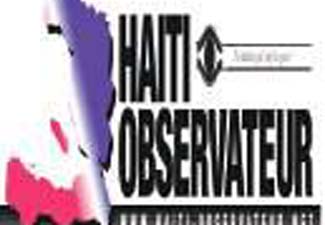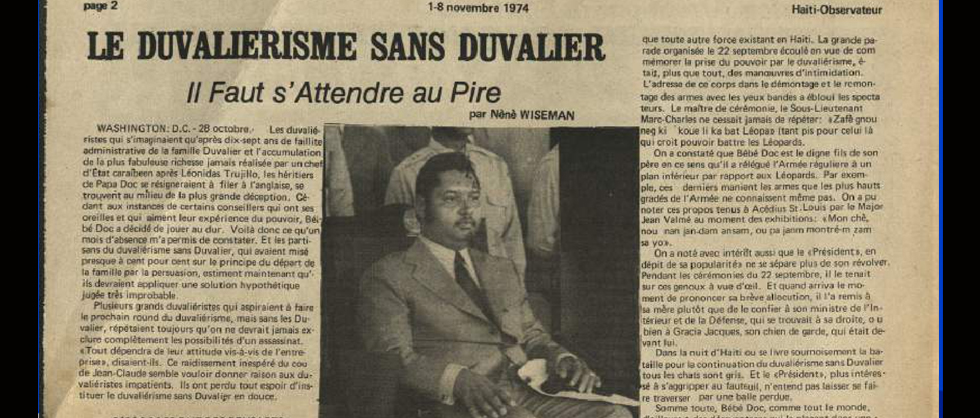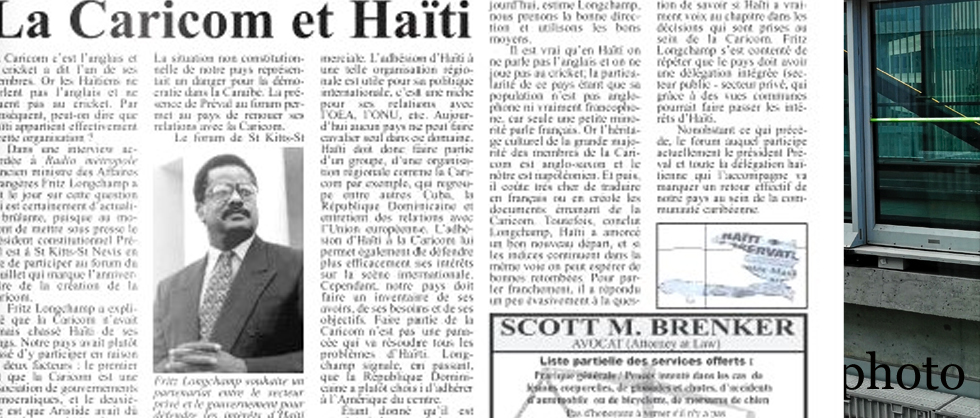Voices of hope for Haiti’s future Edited by Hugh Locke
In this series beginning this week, with a compendium of short articles, our collaborator Hugh Locke shows how, despite the hurdles, some organizations have done commendable work in Haiti since the 2010 earthquake. RAJ.
Conscious that the list of entrenched problems facing Haiti is both long and daunting, a first-time foreign visitor would not recognize the country if their only guidebook was international media coverage of late. To strike some sort of balance, I am sharing a selection of positive initiatives in Haiti that show promise for the future.
 Beauty products that change lives Kreyol Essence makes natural and ethical beauty products sourced with ingredients from Haiti. Since the earthquake, the company has created work for over 300 farmers and women producers with its signature pro- ducts: Haitian Castor Oil, Haitian Moringa Oil and Haitian Vetiver Oil. We have worked for over three years to penetrate the main stream beauty market in order to scale and stabilize our social impact. Expansion plans are now underway with specialty and natural retail partners such as ULTA and Whole Foods Market to have Kreyol Essence products in 2,000 stores. That will translate into sustainable work for 1,000 producers and seasonal/ part time farmers, and within five years the goal is to be able to impact 30,000 households in Haiti. (By Yve-Car Momperousse, CEO of Kreyol Essence)
Beauty products that change lives Kreyol Essence makes natural and ethical beauty products sourced with ingredients from Haiti. Since the earthquake, the company has created work for over 300 farmers and women producers with its signature pro- ducts: Haitian Castor Oil, Haitian Moringa Oil and Haitian Vetiver Oil. We have worked for over three years to penetrate the main stream beauty market in order to scale and stabilize our social impact. Expansion plans are now underway with specialty and natural retail partners such as ULTA and Whole Foods Market to have Kreyol Essence products in 2,000 stores. That will translate into sustainable work for 1,000 producers and seasonal/ part time farmers, and within five years the goal is to be able to impact 30,000 households in Haiti. (By Yve-Car Momperousse, CEO of Kreyol Essence)
Solar-powered electricity grids empowering rural towns
Building on clean energy initiatives launched in 2009, EarthSpark International and its in-country partner, Enèji Pwòp, launched the country’s first solar-powered electricity grid in the town of Les Anglais, southern Haiti, in 2015. While only 30% of Haiti has access to some grid electricity, access to electricity in rural areas is only 5 to10%. Homes and businesses connected to Enèji Pwòp grids enjoy affordable, 24/7, electricity, powered by the sun.
EarthSpark’s award-winning “feminist electrification” approach empowers women as it energizes towns. Just last month, we launched our second grid in the town of Tiburon, and plans are underway for several dozen more grids in the coming years. (By Allison Archambault, President of EarthSpark International)
Establishing a culinary arts
 World Central Kitchen (WCK) was founded in 2010 following the devastating earthquake in Haiti. In 2015, WCK established a culinary program in partnership with the Haitian Department of Education, and in 2017, we built and opened our own École des Chefs culinary school in Port-au-Prince.
World Central Kitchen (WCK) was founded in 2010 following the devastating earthquake in Haiti. In 2015, WCK established a culinary program in partnership with the Haitian Department of Education, and in 2017, we built and opened our own École des Chefs culinary school in Port-au-Prince.
Now the country’s premier culinary school with over 40 students graduating each year, École des Chefs is creating a talented workforce for Haiti’s hospitality sector. Upon graduation, students are placed in internships with hotels and higher end restaurants. The majority of these placements turn into full-time offers of employment for our graduates. (By Alexandra Gar- cia, Chief Program Officer of World Central Kitchen) To be continued
Cet article est publié par l’hebdomadaire Haïti-Observateur, édition du 5 février 2020 VOL. L, No. 5 New York, et se trouve en P. 13 à : http://haiti-observateur.ca/wp-content/uploads/2020/02/H-O-5-Februar-2020-1.pdf










